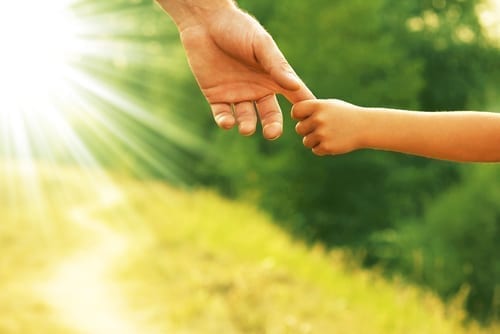A child’s very first need when he is born is to have his existence acknowledged. For this reason, Hakadosh Baruch Hu blessed every newborn child with a voice that is much larger than his tiny size. When he grows a little older, Hashem equips him with a charming smile so that his caregivers feel the need to stay with him as much as they can. Later, the child’s need for acknowledgment may manifest in rebellious behavior and provocative clothing. When Eisav grew up, the clothes he wore were Nimrod’s—clothes of mered, mutiny. This was his way of telling the world, “I am I. I’m a human being. I exist.” Why would a child feel the need to go to such extreme lengths to fulfill this innate need?
Every child, no matter what shell he constructs around his delicate soul, must feel that he is somebody. This is the tefillah we recite at a brit milah immediately before the child’s name is announced: “Elokeinu v’Elokei avoseinu, kayeim et hayeled hazeh l’aviv u'l’imo; Hakadosh Baruch Hu, make this child feel that he exists in the eyes of his parents.” How can a parent accomplish this critically important task? It’s not enough for her to know in her heart that she loves the child. She needs to transmit this love in as many ways as possible through the use of her five senses. Rav Yonatan Eibeshitz tells us that we can see in Parshat Toldot the amazing way our forefather Yitzchak mastered this task. He transmitted his love to his sons despite his blindness by making use of the other four senses.
When Rivkah clothed Yaakov in Eisav’s garb, he immediately reacted by saying, “Ulai yemusheini avi, perhaps my father will touch me.” His father’s embrace was something he was accustomed to, something he expected. As Rav Yonatan points out, this is exactly what happened. As soon as Yaakov entered his father’s chamber, Yitzchak said to him,“Gesha na u’shka li beni, come closer to me and kiss me, my son.” Then he connected to Yaakov through his sense of taste by eating the foods Yaakov brought him. When he said, “Hakol kol Yaakov,” he bonded with Yaakov through his sense of hearing; and then the pasuk tells us, “Vayarach et rei’ach begadav,” he smelled his clothes. Says Rav Yonatan, “How important it is to be a sensitive parent, a parent who uses all of her senses in order to connect to her children.” The Hebrew root of the word for touch (“yemusheini”) is mamash. Only a child who receives enough loving touch from her parents feels that she has a mamashut—an existence.
The pain of those children who miss out on connecting to their parents through all of the senses may prompt them, unfortunately, to fulfill this need from undesirable sources. Rashi tells us that Eisav surrounded himself with wives who were so unfaithful that he had to hide his favorite clothes in his mother’s home so that they wouldn’t steal them from him. Last week I went again to be menachem the mother of a young soldier—this time, the one who was brutally stabbed to death in Tel Aviv. His mother was crying hard, and I tried to console her.
“He’s here with you,” I said to her. But do you know what she kept saying? “But I want to touch him!” Being able to touch our children, to envelop them in a warm embrace, is a great privilege, a zechut we shouldn’t take for granted. Of course, as Jewish mothers, our lives are one long stream of flurry and frenzy. Between taking care of the basic needs of the children and the basic upkeep of the home, there isn’t much time left to connect. But we must keep in mind that this is of paramount importance. Dear Jewish mother, your child will appreciate your loving embrace so much more than an elaborate dinner. He will cherish the quality time you spend with him infinitely more than the latest gadget. Your child’s physical needs are almost petty when it comes to fulfilling his emotional needs. If you want him to feel that he is somebody, there is no one in the world who can transmit this message to him better than you.
Even more important than transmitting your love through your five senses—looking into the child’s eyes, embracing him, listening to his concerns—is blessing him, which is the last part of Yitzchak’s interaction with Yaakov: “Vayevarcheihu—and he blessed him.” There’s nothing like the brachah a parent gives her child. When Eisav entered the room and discovered that the brachot had already been given to his brother, he cried, “Halo atzalta li brachah, didn’t you save a blessing for me?” The letters of atzel can also be read as eitzel, “near.” A pained Eisav asked his father, “Am I not close enough to you to merit receiving your blessings?” Every time we speak to our children positively, every time we point out their strengths, we are bestowing blessings upon them, and this i want only the best for them and that we speak out of love—they will welcome our words. As the ones who are raising the next generation of am Yisrael, the task of making our children feel that they exist lies on our shoulders. The more we acknowledge them with encouragement, with our senses, and with our blessings, the healthier and happier they will, b’ezrat Hashem, grow up to be.




